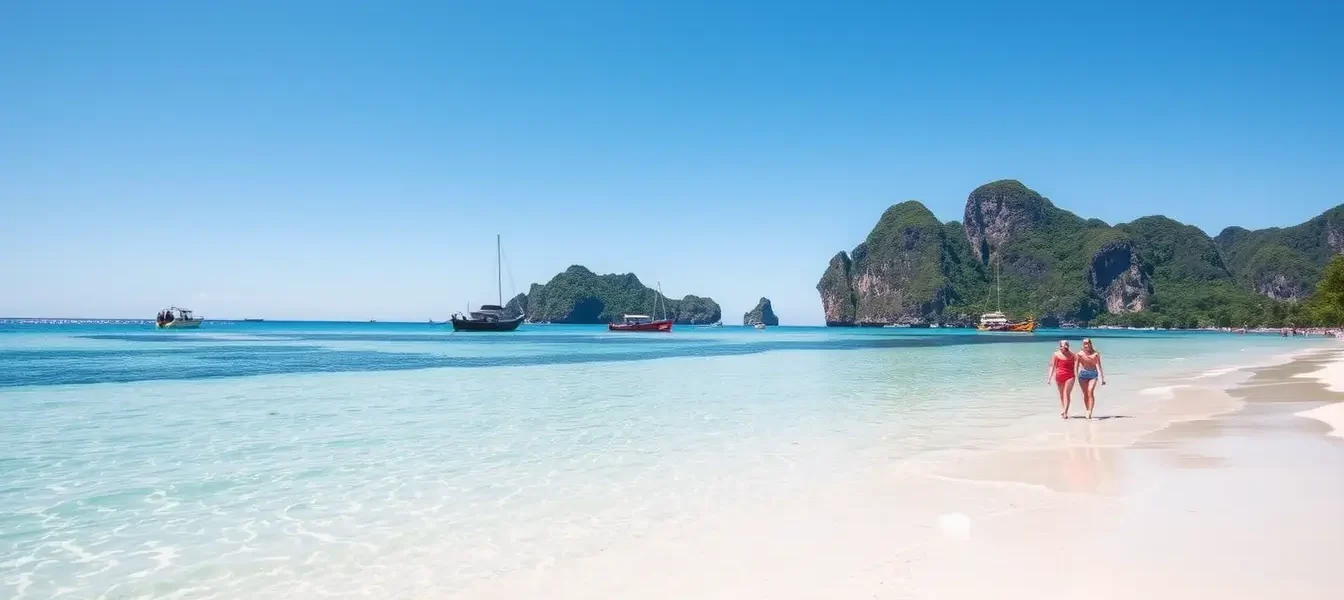El Nido, a picturesque municipality located on Palawan Island in the Philippines, is undoubtedly one of the most breathtaking destinations in Southeast Asia. Renowned for its stunning limestone cliffs, crystal-clear waters, and abundant marine life, El Nido attracts thousands of tourists every year. However, a common question on many travelers’ minds is: Is El Nido safe? In this article, we’ll provide a comprehensive overview addressing the various safety concerns you may have before booking your trip to this tropical paradise.
General Safety in El Nido
When evaluating a destination’s safety, it’s essential to consider various aspects such as crime rates, natural hazards, healthcare facilities, and overall local sentiment towards tourists.
Crime Rates
El Nido is generally considered safe for tourists. The local community is welcoming, and crime rates are relatively low. Nevertheless, travelers should always exercise common sense and take standard precautions:
- Keep an eye on personal belongings.
- Avoid walking alone late at night, especially in poorly lit areas.
- Be aware of your surroundings and avoid displaying valuables such as expensive jewelry or large amounts of cash.
Natural Hazards
As with any tropical destination, El Nido is subject to certain natural hazards. Here are some considerations:
- Typhoons: The Philippines is prone to typhoons, especially during the rainy season (June to November). Check weather forecasts regularly and have contingency plans in place.
- Earthquakes: El Nido is located in a seismically active region, so earthquakes can occur. Familiarize yourself with local emergency procedures.
- Marine Hazards: While the waters are generally safe, there are occasional reports of jellyfish stings and coral cuts. Exercise caution when swimming or diving and follow local guidelines.
Health and Medical Facilities
Healthcare Services
El Nido has several healthcare facilities to address medical needs, though these may not always be as advanced as those in the cities. Here are a few things to keep in mind:
- Clinics: There are multiple clinics in El Nido equipped to handle minor medical issues.
- Hospitals: For serious medical emergencies, it may be necessary to travel to a hospital in Puerto Princesa, the capital of Palawan, approximately a 5-6 hour drive from El Nido.
- Pharmacies: Pharmacies are available for common medications, but it’s advisable to carry any specific medications you may need.
Vaccinations and Health Tips
- Ensure you are up-to-date with routine vaccinations such as measles, mumps, and rubella (MMR) and diphtheria-tetanus-pertussis (DPT).
- Consider vaccinations for Hepatitis A and B, typhoid, and rabies, particularly if you plan to explore rural areas.
- Practice general health precautions such as drinking bottled or purified water and using insect repellent to prevent mosquito-borne diseases like dengue and malaria.
Transportation Safety
Moving around in El Nido is relatively straightforward, but understanding the different modes of transportation and their safety can significantly enhance your travel experience.
By Land
- Tricycles: Tricycles are the most common form of transport within El Nido. They are affordable and convenient but may lack seat belts and other safety features.
- Vans and Buses: For longer distances, vans and buses are available. Ensure that you choose reputable services for a safer journey.
By Water
- Boat Tours: Island hopping tours are a must-do in El Nido. Make sure to book tours with licensed operators, and always wear a life jacket.
- Ferries: Ferries connect El Nido to other parts of Palawan and nearby islands. Check ferry schedules and weather conditions when planning your trip.
Environmental Conservation and Safety
El Nido’s stunning natural beauty largely remains unspoiled due to stringent environmental conservation efforts. Here are some guidelines to ensure that you contribute to the preservation of this paradise:
- No Littering: Dispose of trash responsibly. Littering is strictly prohibited and can incur fines.
- Coral Reef Protection: Avoid touching or stepping on corals. Use reef-safe sunscreen to prevent harmful chemicals from entering the water.
- Wildlife Respect: Do not disturb or feed wildlife. Observe animals from a safe distance to ensure their safety and yours.
- Plastic Ban: El Nido enforces a strict plastic ban. Use reusable bags and containers whenever possible.
Cultural Respect and Etiquette
Understanding and respecting local culture and traditions is crucial for a rewarding and safe experience in El Nido. Here are some cultural etiquette tips:
- Dress Modestly: While beach attire is acceptable on the beach, it’s advisable to dress modestly when visiting local villages or towns.
- Greetings: A simple handshake or a soft nod is a common greeting. Filipinos are generally friendly and welcoming.
- Religious Sensitivity: The Philippines is predominantly Catholic. When visiting places of worship, dress modestly and behave respectfully.
- Language: English is widely spoken, but learning a few basic Filipino phrases can go a long way in showing respect to the locals.
Emergency Contacts and Information
Having emergency contacts on hand is always wise when visiting a foreign destination. Here are some important numbers and information:
- Emergency Hotline: 911 (for police, fire, and medical emergencies)
- Tourist Information Center: The El Nido Tourist Information Center is a great resource for information and assistance.
- Local Embassy: Ensure you have the contact details of your country’s embassy in the Philippines.
Final Thoughts: Is El Nido Safe?
El Nido is undoubtedly a safe and stunning destination when basic precautions are taken. The town thrives on tourism, and both local authorities and businesses work diligently to ensure the safety and well-being of their visitors. Armed with this information, you can confidently plan your trip to this pristine corner of the world. From its vibrant marine life and crystal-clear waters to its friendly locals and mouth-watering cuisine, El Nido promises an unforgettable experience that’s well worth any initial safety concerns.
So, is El Nido safe? We believe it unquestionably is — and absolutely worth every minute of your journey.

